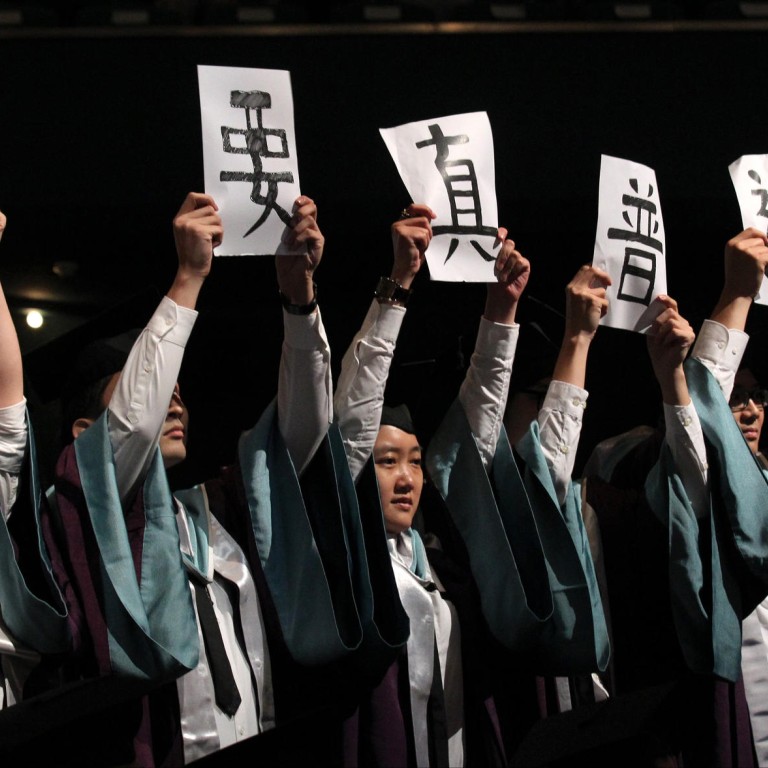
Poll: 46pc of Hongkongers have no confidence in CY
Poll finds many don’t expect governance of Leung Chun-ying to improve, while graduation ceremony he attends is hit by a student protest
Nearly half of more than 800 Hongkongers polled expressed no confidence in Chief Executive Leung Chun-ying's ability to improve his governance in the coming year, a Chinese University survey has revealed.
Of the 813 respondents polled by the university's Institute of Asia-Pacific Studies last week, 46.6 per cent said they had no confidence that Leung's administration would do better in his second year in office.
Only 14.1 per cent expressed confidence in the chief executive, and 38 per cent said "50-50".
The administration was perceived to have done worst in its education policies over the past year, earning the lowest rating of 42.8 on a scale of zero to 100.
Housing and planning policies, which Leung had promised to set as top priorities, also failed to attain the pass mark of 50.
Almost a third of respondents said this area was the No1 issue the chief executive should tackle in the coming year.
The institute's research associate, Yip Tin-sang, said: "Leung has attached great importance to housing, thus raising people's expectations. But when people see that property prices are still high they may not be satisfied and thus give low scores, although the government has already done much to cool the market."
Other policy areas in which Leung also received a negative rating were economic development, environmental protection, and constitutional development and governance.
But contrary to the pan-democrats' fierce demands for full democracy, only 14.9 per cent of those polled said constitutional development and governance ought to be at the top of the administration's agenda.
Leung was perceived to have done best in his health policies, with a score of 54.7, and in welfare, with a score of 50.3.
Further analyses showed that younger respondents who were better educated and had higher incomes tended to have less confidence in Leung's governance.
The survey had a margin of error of 3.4 per cent.
The survey findings came as yet another blow to the chief executive, who yesterday also bore the brunt of a student protest while officiating at the Academy for Performing Arts' graduation ceremony.
Some of the 276 graduating students called for full democracy while on stage, and others turned their backs to Leung and refused to be capped by him. One crossed her arms in front of the chief executive to express her discontent with his governance.
Another bowed to Leung three times in a row - a Chinese tradition of paying tribute to the dead.
"He's not elected by the people. He neglects public opinions and he's controlled by the central government. He's like a dead person," Ng Ka-chun, of the School of Theatre and Entertainment Arts, said later.
Some in the audience also carried placards that read: "True Democracy".
Leung remained composed throughout the ceremony. "Different students have their own ways of expression," he said after the ceremony. "The government has the sincerity and responsibility ... to make universal suffrage for the chief executive come true in 2017.
"We will achieve this goal with different sectors of society, including our young students."

